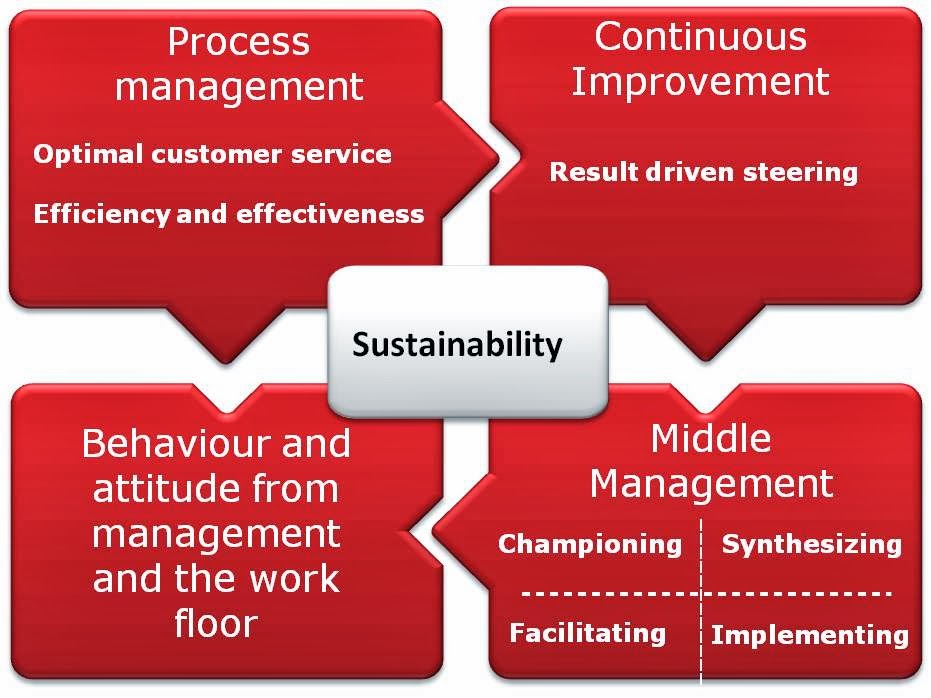The Crucial Role Of Middle Managers In Organizational Effectiveness

Table of Contents
Bridging the Gap Between Leadership and Employees
Middle managers translate strategic goals into actionable plans for their teams. This critical translation process ensures that high-level objectives are understood and implemented effectively at the ground level. They clarify expectations, provide context, and ensure alignment with the overall organizational vision, minimizing the risk of miscommunication and ensuring everyone is working towards the same objectives. Effective middle management fosters a smooth communication flow, minimizing misunderstandings and enhancing collaboration between different departments and teams. Without this vital bridge, the strategic vision of leadership can easily become distorted or lost in translation.
- Clearly communicating company-wide goals to direct reports: This involves breaking down complex objectives into easily digestible chunks, ensuring everyone understands their role in the bigger picture.
- Translating complex strategies into simple, understandable tasks: Effective middle managers possess strong communication and simplification skills, making strategic goals accessible to all team members.
- Regularly checking in with teams to address concerns and provide support: This proactive approach ensures that roadblocks are identified and addressed promptly, maintaining momentum and team morale.
- Facilitating open communication between different teams and levels: Middle managers act as crucial communication hubs, ensuring information flows freely and efficiently across the organization.
Driving Team Performance and Motivation
Middle managers are responsible for building high-performing teams. They achieve this not just through task delegation but through fostering a supportive and motivating environment. They provide coaching, mentorship, and regular performance feedback to their team members, helping them to improve their skills and reach their full potential. Effective middle managers foster a positive and supportive work environment that encourages growth, innovation, and open communication. They identify and address team challenges proactively, improving efficiency and preventing potential issues from escalating. A motivated team is a productive team, and middle managers are key to driving that motivation.
- Implementing effective performance management systems: This includes setting clear goals, providing regular feedback, and conducting performance reviews.
- Providing regular training and development opportunities for team members: Investing in employee growth demonstrates commitment and improves overall team capabilities.
- Recognizing and rewarding employee contributions: Acknowledging hard work and achievements boosts morale and motivates team members to strive for excellence.
- Creating a culture of collaboration and mutual respect: A supportive team environment leads to improved communication, increased efficiency, and better overall performance.
Facilitating Innovation and Adaptability
Middle managers are crucial for driving innovation within their teams. They encourage creative problem-solving and identify opportunities for improvement in processes and workflows. Effective middle managers embrace change and adapt to evolving organizational needs, acting as a buffer between the top-down directives and the frontline realities. They help their teams navigate uncertainty and adapt to new technologies and processes, ensuring seamless transitions and minimizing disruptions. This adaptability is crucial in today's fast-paced business world.
- Encouraging experimentation and risk-taking within a defined framework: This fosters a culture of innovation where new ideas are explored and implemented.
- Identifying and implementing innovative solutions to improve processes and efficiency: Middle managers are often the first to notice inefficiencies and have the power to implement improvements.
- Promoting a culture of continuous learning and improvement: A commitment to ongoing development drives innovation and allows teams to stay ahead of the curve.
- Adapting to changes in the business environment and communicating those changes effectively: This ensures that the team is prepared for and understands upcoming changes.
Developing Future Leaders
Middle managers play a vital role in identifying and developing future leaders within the organization. They provide opportunities for growth and mentorship to high-potential employees, fostering a pipeline of talent for future leadership roles. They delegate effectively, empowering their team members to take on greater responsibility and develop their leadership skills. Effective middle management fosters a strong succession plan for the organization, ensuring long-term stability and growth. Investing in future leaders is an investment in the organization's future success.
- Identifying and nurturing employees with leadership potential: This involves recognizing individuals with the necessary skills and qualities and providing them with opportunities to develop further.
- Providing coaching and mentoring to develop leadership skills: Mentorship programs help employees develop the skills and confidence to take on leadership roles.
- Delegating tasks to empower employees and develop their capabilities: Delegation provides valuable learning opportunities and develops crucial skills.
- Creating a pipeline of future leaders within the organization: A robust succession plan ensures that the organization has qualified leaders ready to take on future responsibilities.
Conclusion
In conclusion, the role of middle managers in achieving organizational effectiveness cannot be overstated. They are the vital link connecting leadership's strategic vision with the day-to-day operations of the organization. By effectively bridging the gap between leadership and employees, driving team performance, fostering innovation, and developing future leaders, middle managers are instrumental in ensuring a company’s overall success. Investing in training and development for your middle management team is an investment in the overall effectiveness of your organization. Prioritize building a strong middle management team to unlock your organization's full potential. Strengthening your middle management will significantly improve your company's performance.

Featured Posts
-
 Ella Mai And Jayson Tatums Son Confirmation In Latest Commercial
May 08, 2025
Ella Mai And Jayson Tatums Son Confirmation In Latest Commercial
May 08, 2025 -
 2 9 4000 360
May 08, 2025
2 9 4000 360
May 08, 2025 -
 Dwp Overhaul Potential Loss Of Benefits For Universal Credit Recipients
May 08, 2025
Dwp Overhaul Potential Loss Of Benefits For Universal Credit Recipients
May 08, 2025 -
 Universal Credit Changes What Claimants Need To Know
May 08, 2025
Universal Credit Changes What Claimants Need To Know
May 08, 2025 -
 Inters Shock Win Against Bayern In Uefa Champions League
May 08, 2025
Inters Shock Win Against Bayern In Uefa Champions League
May 08, 2025
